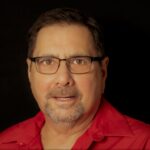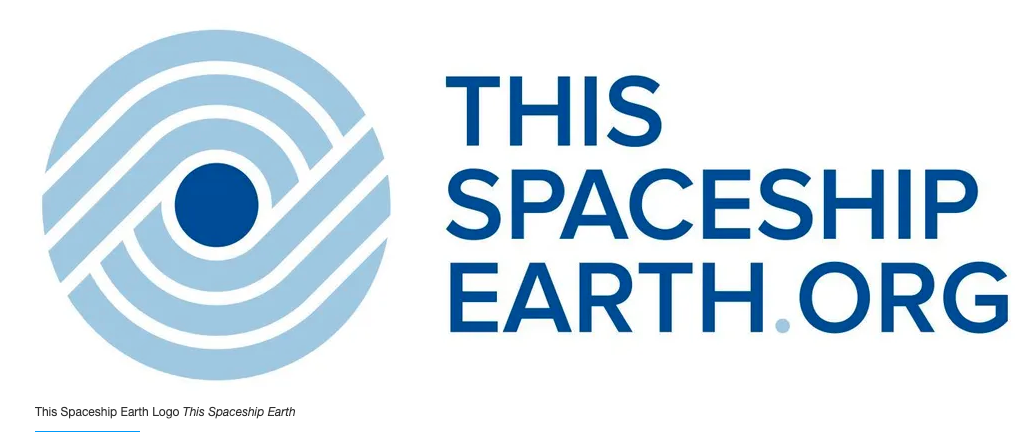 Imagine life on the International Space Station. The spacecraft, which measures just 108 meters end-to-end, is designed for a crew of seven, only exceeding it during crew handovers. While on the ISS, crew members are responsible for each other’s survival and are extremely mindful of their use of resources – water, food, oxygen, and many more. This is because resupplying the ISS is extremely complicated, requiring a carefully coordinated and expensive launch.
Imagine life on the International Space Station. The spacecraft, which measures just 108 meters end-to-end, is designed for a crew of seven, only exceeding it during crew handovers. While on the ISS, crew members are responsible for each other’s survival and are extremely mindful of their use of resources – water, food, oxygen, and many more. This is because resupplying the ISS is extremely complicated, requiring a carefully coordinated and expensive launch.
The Earth is also like a spaceship. However, unlike the ISS, the Earth has no “home base” to resupply from, as it’s the only known place in the universe capable of supporting life. Space and resources are finite, and the world’s ballooning population, expected to reach 9.7 billion by 2050, is using up resources at an incredibly rapid rate.
In the words of philosopher and futurist Marshall McLuhan, “There are no passengers on Spaceship Earth. We are all crew.” This means that every single human being on Earth has a responsibility to take action and responsibly manage the finite resources on this planet. However, only a few people have the “crew consciousness” needed to do this.
McLuhan’s words were among the major inspirations that led to three individuals – David Houle, Tim Rumage, and Bob Leonard – to form This Spaceship Earth, an organization focused on creating a planetary crew consciousness that will spur people to action and address the climate crisis. This Spaceship Earth’s goal is to recruit one billion crew members by working with individuals and hopefully reaching critical mass and leading to social change. According to This Spaceship Earth, there are five actions humanity must take by 2030.
These are: lower greenhouse gas emissions as soon as possible, draw down CO2 from the atmosphere, create crew consciousness (that will drive these last two items), establish habits of conscious non-consumption, and regenerate our biosphere for today and tomorrow.
All three of the founders came from widely different backgrounds, but were brought together by the crew consciousness to establish the organization. Houle, the organization’s president, is a long-time environmental activist, having been part of the hippie movement, who was present at the first Earth Day celebration in 1970. According to Houle, he had read the book Operating Manual for Spaceship Earth by R. Buckminster Fuller, and the message of thinking of Earth as a spaceship reinforced the reality that everything was finite and shaped how Houle looked at things.
Over the decades, Houle worked in the media, helping launch major names in television and entertainment, as well as doing consulting with Fortune 500 companies on branding and strategy. Houle then chose to become a professional futurist in 2006, coining the term The Shift Age and earning the title the “CEOs futurist.” In 2011 Houle became the futurist in residence at the Ringling College of Art and Design. It was there where he met Rumage, and the two became frequent collaborators.
Rumage is a planetary ethicist, professor, and scientist who has been teaching the intersection of Science, Ecology, Art, Design and Architecture for more than 30 years. Aside from being chief science officer of This Spaceship Earth, he is a trained field biologist and is currently the coordinator and developer of Environmental Studies at Ringling, teaching environmental science, sustainability, urban ecology, and environmental ethics.
“We do not need to save the planet, the planet will be fine without us. We need to save ourselves from ourselves. We have created the problem, so we can solve the problem,” said Rummage.
In 2014, Houle wanted to write a book on climate change, and he asked Rumage about what he thought was the root cause of climate change, and Rumage answered it was siloed thinking, which prevented people from understanding the big picture. This resulted in them co-authoring the book, This Spaceship Earth, which eventually became the basis of the organization’s name. Following the publication of the book in 2015, Houle and Rumage realized that consciousness was a resonating point for individuals who were concerned about the environment.
“It actually dovetails with the first book I authored as a futurist in 2007, titled The Shift Age,” Houle says. “I wrote that the Agricultural Age was defined by tools, the Industrial Age was defined by machines, and the Information Age was defined by technology. The Shift Age, which humanity is entering, is defined by consciousness. We are now moving towards a global consciousness, and it perfectly aligns with the need for crew consciousness.”
As a way to take action on the concepts they’ve written in their books, Houle and Rumage planned to launch a nonprofit. Coincidentally, Houle received an email from Leonard, who had heard Houle speak at a presentation and exchanged business cards.
Leonard, who has a background in B2B technology, had moved to Florida to start his own marketing agency, working with small software companies. One day, Leonard had a near-death experience after being shot in a home invasion. This incident changed his world view and he wanted to do something that mattered in the grand scheme of things. Having researched the effects of climate change, Leonard realized that this was his purpose and he could make a positive impact. Not just as an individual but as a parent, Leonard realized he and those around him has a responsibility to crew Spaceship Earth. This led Leonard to dig out the business card he once received for Houle and he joined This Spaceship Earth as chief content officer, eventually co-authoring Moving to a Finite Earth Economy – Crew Manual with Houle.
“Our organization combines three different perspectives to provide a holistic view and solutions to the climate crisis,” Leonard says. “When people ask me what they can do to help the cause, I tell them to become an active crew member. The specific actions they can take are limitless because climate touches everything. So no matter what their interests, education, experience or skills, there are many actions they can take. And taking action is the best way to overcome climate anxiety.”
